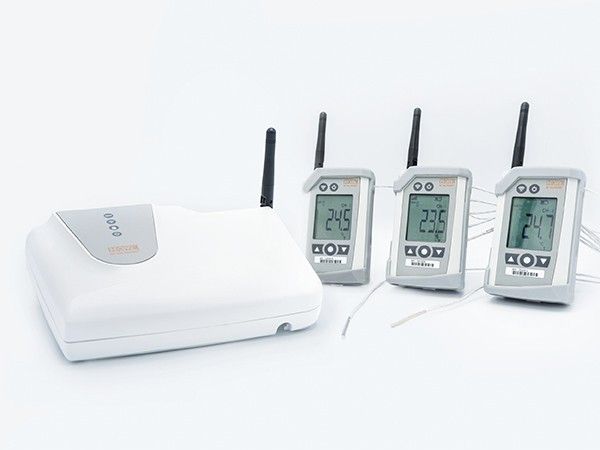Introduction
In the era of data-driven decision-making, industries across the spectrum are turning to innovative solutions to gather and manage critical information efficiently. One such groundbreaking technology is wireless data loggers. These devices have transformed the way data is collected, monitored, and analyzed in various sectors. In this comprehensive article, we delve into the world of wireless data loggers, understanding their functionalities, benefits, applications, and their role in shaping the future of data management.
Understanding Wireless Data Loggers
Wireless data loggers, often referred to as remote data loggers or wireless data recorders, are advanced monitoring devices designed to collect and transmit data from various sources without the need for physical connections. Unlike traditional data loggers that require manual retrieval, wireless data loggers send real-time or near-real-time data wirelessly to central databases, cloud platforms, or other designated storage systems.
The Functionality of Wireless Data Loggers
Wireless data loggers are equipped with sensors to measure a wide range of parameters such as temperature, humidity, pressure, light, voltage, and more. These sensors continuously collect data and convert it into digital format. The data is then transmitted using wireless communication technologies such as Wi-Fi, Bluetooth, cellular networks, or LoRaWAN (Long Range Wide Area Network). This real-time transmission allows for instant access to critical information without the need for manual data retrieval.
Benefits of Wireless Data Loggers
1. Real-Time Monitoring: One of the most significant advantages of wireless data loggers is the ability to monitor conditions in real time. This instant access to data empowers businesses to respond quickly to changes or anomalies, ensuring prompt corrective actions.
2. Enhanced Accuracy: Traditional data collection methods may introduce errors during manual retrieval or transcription. Wireless data loggers eliminate these errors by automating the entire process, leading to more accurate and reliable data.
3. Cost Efficiency: The automation of data collection reduces the need for manual labor, leading to cost savings over time. Additionally, swift detection of issues can prevent costly damages and downtime.
4. Accessibility and Remote Monitoring: Wireless data loggers facilitate remote monitoring, enabling stakeholders to access critical data from virtually anywhere with an internet connection. This is particularly beneficial for multi-location operations.
5. Scalability: Wireless data logger systems can be easily scaled up to accommodate a growing number of sensors and monitoring points. This scalability is essential for industries that expand or diversify their operations.
6. Data Analytics and Insights: Real-time data transmission allows for immediate analysis, leading to timely insights. Businesses can identify trends, patterns, and correlations that can inform strategic decisions.
Applications of Wireless Data Loggers
1. Environmental Monitoring: Industries such as agriculture, forestry, and ecology use wireless data loggers to monitor environmental conditions. These loggers track parameters like temperature, humidity, soil moisture, and light intensity, providing valuable data for informed land management.
2. Cold Chain Management: In the pharmaceutical and food industries, maintaining a consistent temperature is critical to preserve product quality and safety. Wireless data loggers monitor temperature during transportation and storage, alerting stakeholders to deviations that could compromise product integrity.
3. Industrial Processes: Manufacturing and industrial processes often require strict control of variables such as temperature, pressure, and humidity. Wireless data loggers provide real-time monitoring to ensure that these parameters remain within specified ranges, optimizing production quality and efficiency.
4. Energy Management: Wireless data loggers play a crucial role in energy management by monitoring energy consumption, temperature variations, and occupancy patterns in buildings. This data informs energy-saving strategies and contributes to sustainability efforts.
5. Healthcare and Life Sciences: In healthcare settings, wireless data loggers monitor conditions in medical storage units, laboratories, and patient environments. This ensures that sensitive medical supplies, specimens, and equipment are stored under optimal conditions.
Integration of Wireless Data Loggers with IoT
The Internet of Things (IoT) has greatly influenced the capabilities of wireless data loggers. By integrating with IoT networks, these loggers can communicate with a broader ecosystem of devices and systems. This interconnectedness allows for more advanced data analytics, predictive maintenance, and automation of corrective actions based on real-time insights.
Considerations When Implementing Wireless Data Loggers
1. Compatibility and Interoperability: When choosing wireless data loggers, ensure they are compatible with existing systems and can seamlessly integrate with the chosen wireless communication technology.
2. Data Security: As data is transmitted wirelessly, ensuring its security and protection from unauthorized access is paramount. Employ encryption and other security measures to safeguard sensitive information.
3. Reliability and Redundancy: While wireless systems are efficient, they can be susceptible to interruptions in connectivity. Implement redundancy measures to ensure continuous data transmission even in the event of network issues.
4. Scalability: Choose a wireless data logger system that can accommodate your organization’s future needs, allowing for the addition of sensors and monitoring points as required.
Conclusion
Wireless data loggers have brought about a paradigm shift in data collection, monitoring, and analysis across industries. By offering real-time insights, enhanced accuracy, and remote accessibility, these devices are driving efficiency, improving decision-making, and enabling organizations to adapt to dynamic environments. As technology continues to evolve, the capabilities of wireless data loggers will expand, shaping a future where data-driven operations are more streamlined, informed, and responsive than ever before.



